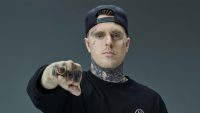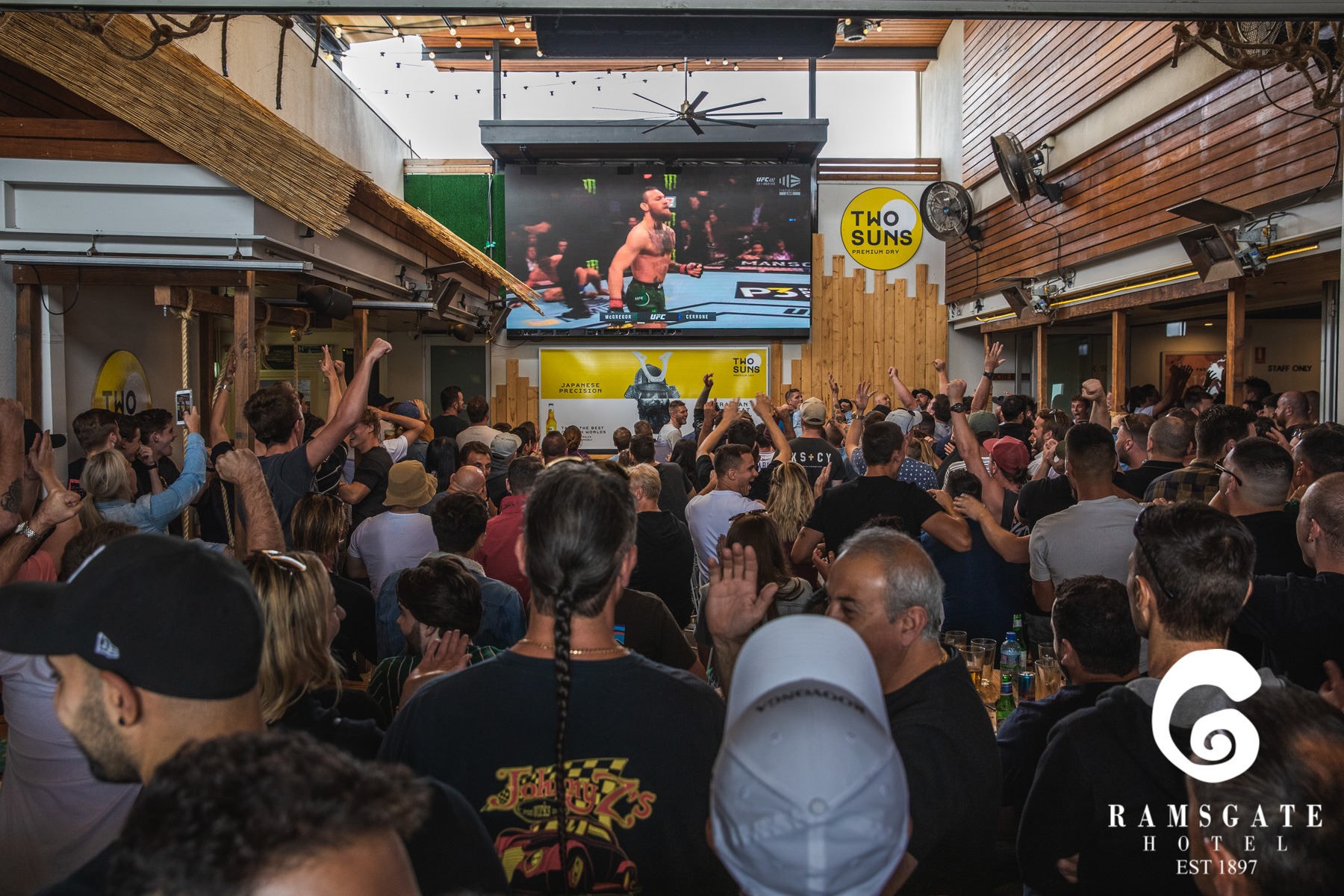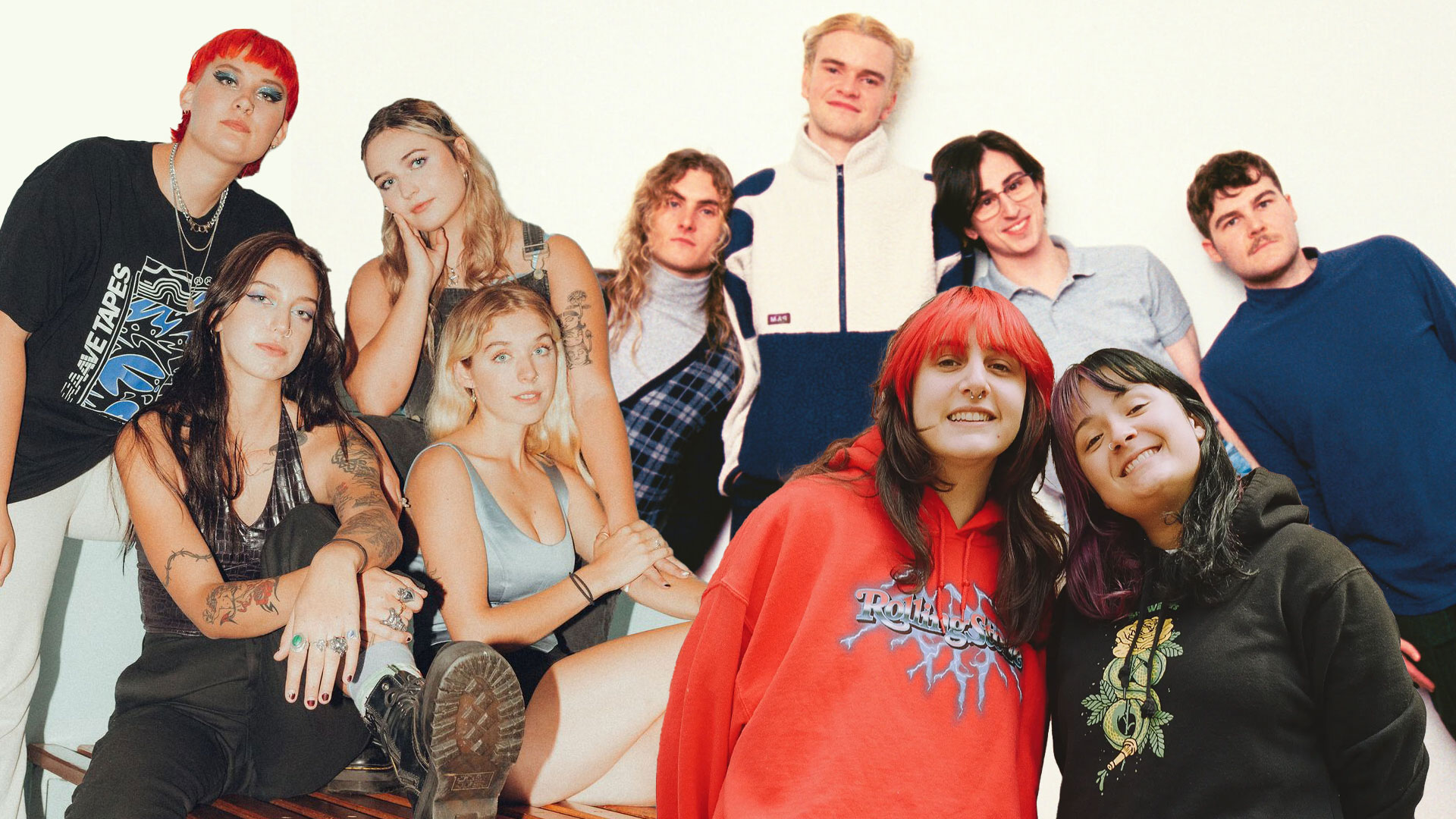
The opening bars of 360’s fresh new drop, Most Wanted Freestyle, go like this: “Some thought I disappeared, others thought I dropped dead/ Some thought it was never there, but I knew I had it from the onset…”
After five or six years spent facing his demons, taking a break from gigging and checking into rehab (twice), rapper 360 – Matt Collwell to his mates – is back and more potent than ever. Ahead of 360’s Back To Life Regional Tour Part 1, which kicks off in November, we caught up with the ace rapper to discuss the changing face of Aussie hip hop, experimenting with new genres, overcoming addiction and implementing strategies to maximise health while on tour.
Shaking off the cobwebs
“I did the first tour back after about five or six years through June and, I won’t lie, at the start it was a little bit difficult. My nerves – I feel like I had to shake some cobwebs off after the first few shows and that was quite confronting, like, I didn’t know what to expect. But then I sort of figured out this little routine of how to warm up and do a bit of meditation and praying, and all this kind of stuff, and that settled my nerves. And each show just got better as far as the nerves going and stuff so, yeah! I’m feeling excited for the regional tour. It’s gonna be epic.”
Mixing up beats
“The songs I’ve been releasing this year, a few of them have been over a tempo of around 90 to 95 BPM and more of a boom bap sort of hip-hop beat. I wanted to mix it up a bit and just go over the more modern, 808-style uptempo beats and show a bit of versatility.
“I’ve been writing this new rap that I just uploaded yesterday over a FISHER [x Kita Alexander] song [Atmosphere]. That beat is just crazy and I don’t even really know what kinda song it is, whether it’s EDM or house. But I just love that stuff – it’s really cool – and I wanna make more music like that. I wanna try and find people who make those kinda beats.”
Figuring out a flow
“So when I’m writing, I put the beat on and I just start rapping but it’s, like, not really words, it’s just gibberish to try and figure out a flow. And then stuff just starts coming to me, as far as what lyrics I should write down. It all just depends on the music, really.”
Most Wanted Freestyle
“[The current show] is me and a DJ – there’s no live instruments – but we are doing all the stuff that we’ve never really done live before, so the new one I put up on TikTok yesterday [aforementioned Atmosphere remix], Most Wanted Freestyle, there’s this Morgan Wallen remix [Last Night] I did as well. We’re just gonna start pulling all the stuff from the old days – all the classics, all the mixtape stuff – and any new stuff I’ve done this year, as well as stuff that I’ve never performed before. So it’s gonna be a whole mixed bag and the set will go for about an hour and a half.”
First-ever live performance
“I was 16 and it was at a place called Laundry [Bar, Fitzroy], and my folks were absolutely petrified – they thought I was hanging with the wrong crowd, you know? But they were still great, they supported me. They waited out the front, let me go inside. The venue had a bit of an issue with me being underage, but they let me jump up and do the one song that I was doing in the guy’s set and then I had to leave as soon as I was finished. But it was really awesome. A great memory.”
“Outcast in the Australian hip-hop scene”
“When I was younger I ran my mouth a lot. I was toxic myself, so when I came into the scene I was talking shit on everyone – just being a big mouth, know-it-all kid with a big ego. And I think that set me up to be a little bit of an outcast in the Australian hip-hop scene for a long time – and I sort of still feel it, in a way – but it was something that I’d brought on myself.
“And I’ve made a lot of friends as well. But even in the non-toxic parts, there is a lot of competition and it can really affect relationships, unfortunately; it can make friendships go downhill when there’s that competitive element in there.
“When I was growing up, I really had this need to kinda prove myself, I think: [to feel] as though I belonged and that I was meant to be where I was meant to be. I think it was an insecurity thing, but, yeah, I’m glad I got past that now.”
“I’ve eaten shit and fallen flat on my face!”
“Every time I’ve had those moment where I go blank, I’ve just freestyled and acted like it was a part of it and it sorta seems to cover it up; like, you start rapping about people in the crowd or something like that and it just takes their attention away from the fact that you stumbled. But there have been times where I’ve completely gone blank and just looked at the DJ thinkin’ they would save me, but no one does! And then I’ve had to just go, ‘Alright, I messed up,’ and just cop it. There’s been times when I’m walking up the stairs in the intro – where I’m meant to be looking all cool and suave and stuff – and I’ve just stacked it and eaten shit and fallen flat on my face!”
Slim Shady fandom
“I was so into Eminem. He was actually my first concert that I ever went to when I was 14, as a birthday present. It’s still the best show I think I’ve ever seen. It was amazing.”
“I’ve been to rehab twice”
“I went through a big stage of codeine dependency and it was horrible. It was so hard to stop. For a long time when I was performing, every show I did I was just off-my-head wasted. And I was still performing really well so it wasn’t an issue at the time, as much as we thought. But it really was. It turned out to be a huge issue; one of the hardest things I’ve had to get off, actually.
“I’ve been to rehab twice. I can’t remember the exact years. The first time was ages ago, I had an overdose and had to cancel the rest of the tour after the fifth show or something like that, which was really disappointing. But I ended up going to rehab for a month, and got out and was put on this drug replacement stuff. Then my second stint in rehab was just at the very beginning of when Covid started. I went in there right before the real strict lockdowns kicked in and I was in there for four months.
“We had to be so careful and if we ever went out for a day trip, out of rehab, we had to mask-up and do all the stuff… It was a very confusing time. When I came out, everything had changed. It was like a movie. We didn’t have phones in there, and no connection to the outside world, and then getting out it was just like, ‘What the hell is going on? This is so bizarre!’”
Overcoming creative block
“I did a lot of writing while I was in rehab. It wasn’t great, but it was just good to be talkin’ about what I was going through. Once I got out I was really unwell for about a year and I just didn’t have any creative juices flowing at all. So it took me about a year to start getting back into it properly. But then after that, yeah! Now it’s all I do.
Acting side hustle
“I was in a movie, but it was only short; nothing major. It was an awesome movie called Is This The Real World. It was fun, a really fun experience. At the time I was putting myself out there to different agents and things like that, and they were like, ‘Oh, we’ve got this opportunity for you.’ I was like, ‘Yeah, let’s do it, this is awesome.’ It was wild. I’d love to do more, but, yeah, that artform is totally, totally different to rapping. I respect it so much.”
Hip-hop gatekeepers, begone!
“Where the hip-hop scene is now is really great. I feel like there used to be a big kinda gatekeeping element to it where people who branched out and tried different genres were seen as selling out, or not staying true to hip hop, which I think has shifted these days. I think people are way more supportive of people who are branching out and pushing the envelope, and I really love that.
“TikTok has provided a huuuuuuuge way for artists to get out there without needing radio anymore. I’m so glad [the scene] has [changed so much]. It’s incredible.”
Future hip-hop star: Mason Dane
“Check out Mason Dane, he’s an absolute killer at the moment. I think that kid’s got a massive future. My manager was like, ‘Oh, check this kid out,’ and then the week I checked him out T-Pain actually got onto him, then flew him out to Atlanta and worked with him and they made all these songs together and stuff. So he’s well on his way to becoming something quite massive.”
Prioritising health on tour
“I remember back in the day. I think I’m so conditioned to getting wasted and being on different substances just to get you through the show and make you sort of amped-up, because it’s really hard if you’re feeling down-in-the-dumps and you’ve gotta get up on stage; it can be really, really difficult to turn it on and, like, bring your whole energy levels up. And when you get up there [on stage], the adrenaline kicks in and it just does it for you. So it works. But if you [rely on substances] too much, you end up having really massive comedowns; it really knocks you around.
“I’ve noticed, even now – without any substances or drinking or anything like that – it can still really, really knock you around, because you’re not sleeping that much, you’re not eating that healthily – because you’ve basically just gotta eat whatever you can find when you’re on the road, when you’re touring – and it’s really not good for you. So it does take its toll. And if you’re adding drugs and alcohol into that then it’s just a recipe for disaster and, yeah, it’s only gonna end badly. So this year I’ve just been drinking tea before shows and stuff like that. It’s so wholesome now! [laughs] It’s so much different.”
“A band aid that makes the wound fester”
“I hope I can inspire young kids to not do that [abuse substances while touring], ‘cause it really does set you up for a hard slog if that’s the way you perform for most of your career – as an up-and-comer – then when you get older it’s just always gonna be on your mind, like, ‘Oh, if I could just have a few drinks now that’d calm the nerves completely.’ It does at the time, but then it’s just gonna make it worse in the long run. It’s just a band aid that makes the wound fester.”
Supporting Support Act
For his Mulgrave, Frankston, Ipswich, Noosaville, Gladstone, Airlie Beach, Townsville and Cairns shows, 360 has partnered up with Support Act and will donate $1 from every ticket sold to music industry charity, Support Act. Live At Your Local will match every $1 donation as well, so that means $2 from every ticket sold goes directly into Support Act’s coffers!
Head to 360music.com.au to secure tickets for 360’s Back To Life Regional Tour Part 1.


